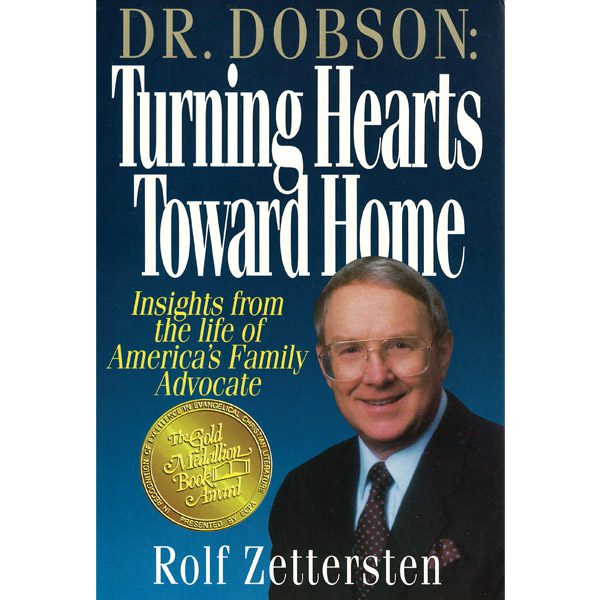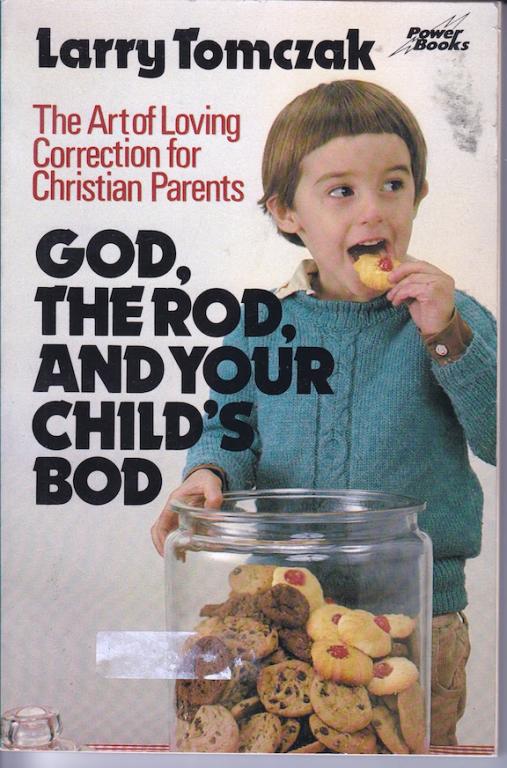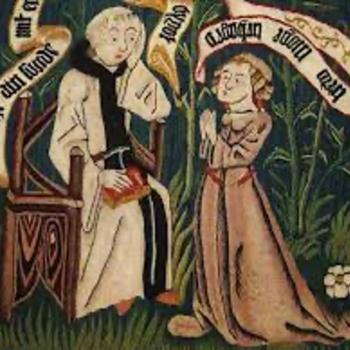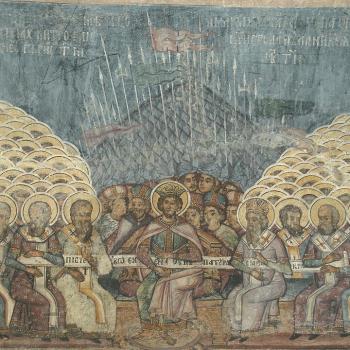“Turning hearts toward home”—a phrase Dr. James Dobson has repeated so often over the last four decades that it sounds like scripture. It’s hard to believe now, but his unrelenting focus on the family would have been viewed as heretical by evangelicals a century and a half ago.
 Indeed, revivalistic religion in the eighteenth century often tore families apart. As Christine Heyrman writes, “For those to whom Canaan’s language long remained an unintelligible tongue, the conversion of beloved relatives could lead to enduring emotional estrangement. Transformed by their newfound zeal, dutiful sons and daughters, affectionate siblings and spouses . . . [could become] remorseless, relentless, seemingly heartless in dealing with loved ones.”
Indeed, revivalistic religion in the eighteenth century often tore families apart. As Christine Heyrman writes, “For those to whom Canaan’s language long remained an unintelligible tongue, the conversion of beloved relatives could lead to enduring emotional estrangement. Transformed by their newfound zeal, dutiful sons and daughters, affectionate siblings and spouses . . . [could become] remorseless, relentless, seemingly heartless in dealing with loved ones.”
The instinct to de-emphasize family continued in the nineteenth century. Methodist evangelist Phoebe Palmer suffered the death of two young children, and she interpreted these tragedies as divine discipline. “After my loved ones were snatched away,” she wrote in her journal in 1831, “I saw that I had concentrated my time and attentions far too exclusively, to the neglect of the religious activities demanded. Though painfully, learned, yet I trust the lesson has been fully apprehended. From henceforth, Jesus must and shall have the uppermost seat in my heart.” Palmer’s heart was sanctified at the moment it turned away from home.
Ironically, the nurture of family was first a mainline value. As historian Margaret Bendroth shows in her terrific book, Growing Up Protestant: Parents, Children and Mainline Churches (2002), white middle-class Protestants in the 1860s advocated for regular family devotions, recitations of the catechism, Bible memory, and careful attention to children’s dress and diet. Congregationalist minister Horace Bushnell wrote, “Dress your child for Christ if you will have him a Christian; bring everything, in the training, even of his body, to this one final aim, and it will be strange, if the Christian body you give him does not contain a Christian soul.”
Another nineteenth century mainliner explained that the outside world was a source of temptation for boys. To guard against this, parents must “make a home-life for the evenings so pleasant, so attractive, so charming that they will not want to leave it for any course of glaring fascinations outside.” He suggested “romping,” games, music, or “the reading aloud of some racy and interesting book” to distract them away from worldly delights. Protestant liberals, explains Bendroth, enjoyed such nurturing childhoods that they “never underwent the emotional rigors of conversion. Few, if any, remembered their religious upbringing with animosity or confusion.”
Fundamentalists weren’t impressed. Their eschatology—that souls were the priority because the world might end at any moment—overwhelmed a commitment to family life. Consequently, they published a paucity of family advice literature compared to the Protestant mainline, and the little they did write rarely preached more than order and submission to authority.
Then the 1960s happened. A naïve faith in the middle-class home could not protect teenagers from sexual anarchy. Moreover, Bendroth writes, there was “a void around more complex theological issues of sex and family life.” Evangelicals filled the void left by the mainline. Indeed, mainliners had ceded their moral authority so much that books by evangelical authors such as James Dobson began to appear in mainline church libraries and in advertisement columns of liberal Protestant magazines. Dobson would later say that his greatest encouragement came early on from “wives and mothers who believed in traditional values, and yet were not hearing the things I was saying within the books they were reading and the television shows they watched.”
 By the late 1970s evangelicals had supplanted mainliners as the new religious protectors of family values. The National Association of Evangelical celebrated its fortieth anniversary by holding a three-day conference called “Save the Family.” Dobson, Bill Gothard’s Basic Youth Conflict seminars, and a bevy of conferences and political action committees joined forces with a surging conservative movement to denounce abortion, feminism, and homosexuality. They also launched a new subculture of music, radio, bookstores, and homeschooling to reinforce their antipathies.
By the late 1970s evangelicals had supplanted mainliners as the new religious protectors of family values. The National Association of Evangelical celebrated its fortieth anniversary by holding a three-day conference called “Save the Family.” Dobson, Bill Gothard’s Basic Youth Conflict seminars, and a bevy of conferences and political action committees joined forces with a surging conservative movement to denounce abortion, feminism, and homosexuality. They also launched a new subculture of music, radio, bookstores, and homeschooling to reinforce their antipathies.
Not all of it was political. For every Focus on the Family radio show explicitly devoted to the culture wars, there were half a dozen focused on conflict resolution, inspirational stories, marital intimacy, child discipline, how to have fun as a family, and other topics related to family nurture. As articulated in a 1982 book entitled God, the Rod, and Your Child’s Bod, the Christian family is “that place where parents so live the Christian life and so practice the presence of Christ that they children grow up to naturally accept God as the most important fact in life.”
This new sensibility represented a substantial shift within evangelicalism, which historically had been “deeply suspicious of domestic entanglements.” As Bendroth aptly puts it, “The identification of erstwhile fundamentalists as pro-family is one of the ironies of recent history.”













